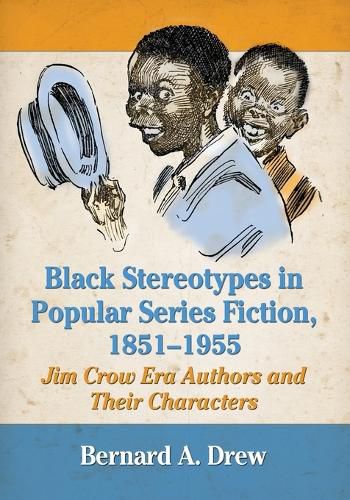Readings Newsletter
Become a Readings Member to make your shopping experience even easier.
Sign in or sign up for free!
You’re not far away from qualifying for FREE standard shipping within Australia
You’ve qualified for FREE standard shipping within Australia
The cart is loading…






This title is printed to order. This book may have been self-published. If so, we cannot guarantee the quality of the content. In the main most books will have gone through the editing process however some may not. We therefore suggest that you be aware of this before ordering this book. If in doubt check either the author or publisher’s details as we are unable to accept any returns unless they are faulty. Please contact us if you have any questions.
Even well-meaning fiction writers of the late Jim Crow era (1900-1955) perpetuated racial stereotypes in their depiction of black characters. From 1918 to 1952, Octavus Roy Cohen turned out a remarkable 360 short stories featuring Florian Slappey and the schemers, romancers and ditzes of Birmingham’s Darktown for The Saturday Evening Post and other publications. Cohen said, I received a great deal of mail from Negroes and I have never found any resentment from a one of them. The black readership had to be satisfied with any black presence in the popular literature of the day.
The best known white writers of black characters included Booth Tarkington (Herman and Verman in the Penrod books), Irvin S. Cobb (Judge Priest’s houseman and Jeff Poindexter), Roark Bradford (Widow Duck, the plantation matriarch), Hugh Wiley (Wildcat Marsden, the war veteran who travelled the country in the company of his goat) and Charles Correll and Freeman Gosden (radio’s Amos ‘n’ Andy). These writers deservedly declined in the civil rights era, but left a curious legacy that deserves examination.
$9.00 standard shipping within Australia
FREE standard shipping within Australia for orders over $100.00
Express & International shipping calculated at checkout
This title is printed to order. This book may have been self-published. If so, we cannot guarantee the quality of the content. In the main most books will have gone through the editing process however some may not. We therefore suggest that you be aware of this before ordering this book. If in doubt check either the author or publisher’s details as we are unable to accept any returns unless they are faulty. Please contact us if you have any questions.
Even well-meaning fiction writers of the late Jim Crow era (1900-1955) perpetuated racial stereotypes in their depiction of black characters. From 1918 to 1952, Octavus Roy Cohen turned out a remarkable 360 short stories featuring Florian Slappey and the schemers, romancers and ditzes of Birmingham’s Darktown for The Saturday Evening Post and other publications. Cohen said, I received a great deal of mail from Negroes and I have never found any resentment from a one of them. The black readership had to be satisfied with any black presence in the popular literature of the day.
The best known white writers of black characters included Booth Tarkington (Herman and Verman in the Penrod books), Irvin S. Cobb (Judge Priest’s houseman and Jeff Poindexter), Roark Bradford (Widow Duck, the plantation matriarch), Hugh Wiley (Wildcat Marsden, the war veteran who travelled the country in the company of his goat) and Charles Correll and Freeman Gosden (radio’s Amos ‘n’ Andy). These writers deservedly declined in the civil rights era, but left a curious legacy that deserves examination.